The relentless hum of machinery, the rhythmic movement of assembly lines, the steady flow of production – these are the hallmarks of a thriving industrial operation. But behind this facade of continuous output lies a critical, often unseen, force: industrial maintenance. Without a robust industrial maintenance program, even the most advanced industrial systems are vulnerable to breakdowns, inefficiencies, and ultimately, significant financial losses.
Key Takeaways:
- Industrial maintenance is essential for preventing costly downtime and extending the lifespan of equipment.
- Proactive industrial maintenance strategies, such as preventive and predictive maintenance, are more effective than reactive approaches.
- Effective industrial maintenance contributes to improved safety, increased productivity, and reduced operational costs.
- Utilizing CMMS and data analysis can optimize maintenance schedules and resource allocation.
Why is Industrial Maintenance Important for Operational Efficiency?
Imagine a complex manufacturing plant, relying on hundreds of interconnected machines. Each machine, from robotic arms to conveyor belts, plays a vital role in the production process. Now, envision one of these machines suddenly failing. The entire production line grinds to a halt. Orders are delayed, customers are dissatisfied, and profits plummet. This scenario highlights the critical importance of industrial maintenance.
Industrial maintenance is the systematic process of inspecting, repairing, and replacing equipment to ensure it operates reliably and efficiently. It goes beyond simply fixing things when they break. A well-structured industrial maintenance program focuses on preventing failures before they occur. This proactive approach minimizes downtime, reduces repair costs, and extends the lifespan of valuable equipment.
Consider the alternative. A reactive maintenance strategy, where repairs are only performed after a breakdown, can lead to prolonged periods of inactivity. Waiting for replacement parts, mobilizing repair teams, and troubleshooting complex issues can take days, even weeks. The cumulative effect of these disruptions can be devastating to a company’s bottom line.
Effective industrial maintenance also contributes to improved energy efficiency. Well-maintained equipment operates at peak performance, consuming less energy and reducing the company’s environmental footprint. This is particularly important in industries with high energy consumption, such as manufacturing and processing. Furthermore, consider legacy systems that may be running on older operating systems or platforms requiring gb of storage. These systems if not properly maintained could lead to significant security or compatibility issues.
How Does Proactive Industrial Maintenance Reduce Downtime?
The key to minimizing downtime lies in adopting a proactive industrial maintenance strategy. This encompasses two primary approaches: preventive maintenance and predictive maintenance.
Preventive maintenance involves performing routine inspections, lubrication, cleaning, and component replacements on a predetermined schedule, regardless of the equipment’s condition. This proactive approach helps identify and address potential problems before they escalate into major failures. By regularly servicing equipment, companies can extend its lifespan, reduce the risk of unexpected breakdowns, and maintain optimal performance.
Predictive maintenance takes a more sophisticated approach, using sensors, data analytics, and machine learning algorithms to monitor equipment performance and predict potential failures. This allows maintenance teams to address issues before they cause downtime, optimizing maintenance schedules and resource allocation. For example, vibration analysis can detect early signs of bearing wear in rotating machinery, allowing technicians to schedule a replacement before the bearing fails completely. Infrared thermography can identify overheating components, preventing electrical fires and equipment damage.
The integration of Computerized Maintenance Management Systems (CMMS) is crucial for effective proactive industrial maintenance. A CMMS helps companies track equipment history, schedule maintenance tasks, manage inventory, and analyze maintenance data. This centralized platform provides a single source of truth for all maintenance-related information, enabling informed decision-making and improved efficiency.
The Impact of Industrial Maintenance on Safety and Productivity
The benefits of industrial maintenance extend beyond cost savings and reduced downtime. It also plays a critical role in ensuring workplace safety and boosting productivity.
Well-maintained equipment is less likely to malfunction or break down unexpectedly, reducing the risk of accidents and injuries. Properly functioning safety devices, such as emergency shut-off switches and safety guards, are essential for protecting workers from harm. Regular inspections and maintenance of these devices ensure they are in optimal working condition.
Furthermore, a clean and well-organized work environment contributes to improved morale and productivity. By keeping equipment clean and properly lubricated, maintenance teams can reduce noise levels, improve air quality, and create a more pleasant and safe working environment. This, in turn, can lead to increased worker satisfaction and productivity.
Consider the impact of a poorly maintained conveyor belt in a distribution center. A malfunctioning belt can cause packages to fall, creating a safety hazard and slowing down the flow of goods. Regular maintenance, including belt alignment, roller replacement, and lubrication, can prevent these problems and ensure smooth and efficient operations.
Optimizing Industrial Maintenance with Data Analysis and Technology
The future of industrial maintenance is increasingly data-driven. The advent of the Internet of Things (IoT) and advanced analytics has opened up new possibilities for optimizing maintenance strategies and improving equipment reliability.
By connecting sensors to equipment and collecting real-time data on performance, companies can gain valuable insights into the health and condition of their assets. This data can be analyzed to identify trends, predict failures, and optimize maintenance schedules. For example, analyzing historical data on equipment failures can help identify common causes and develop preventive maintenance procedures to address those issues.
Machine learning algorithms can be used to predict equipment failures with a high degree of accuracy. These algorithms can learn from historical data and identify patterns that are not readily apparent to human analysts. This enables maintenance teams to proactively address potential problems before they cause downtime.
Augmented reality (AR) and virtual reality (VR) technologies are also transforming industrial maintenance. AR can be used to overlay digital information onto real-world equipment, providing technicians with step-by-step instructions for performing maintenance tasks. VR can be used to create immersive training simulations, allowing technicians to practice complex maintenance procedures in a safe and controlled environment.








